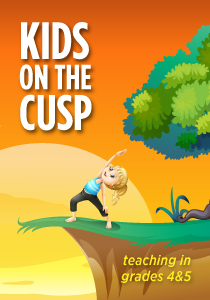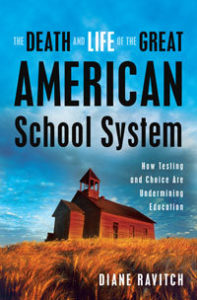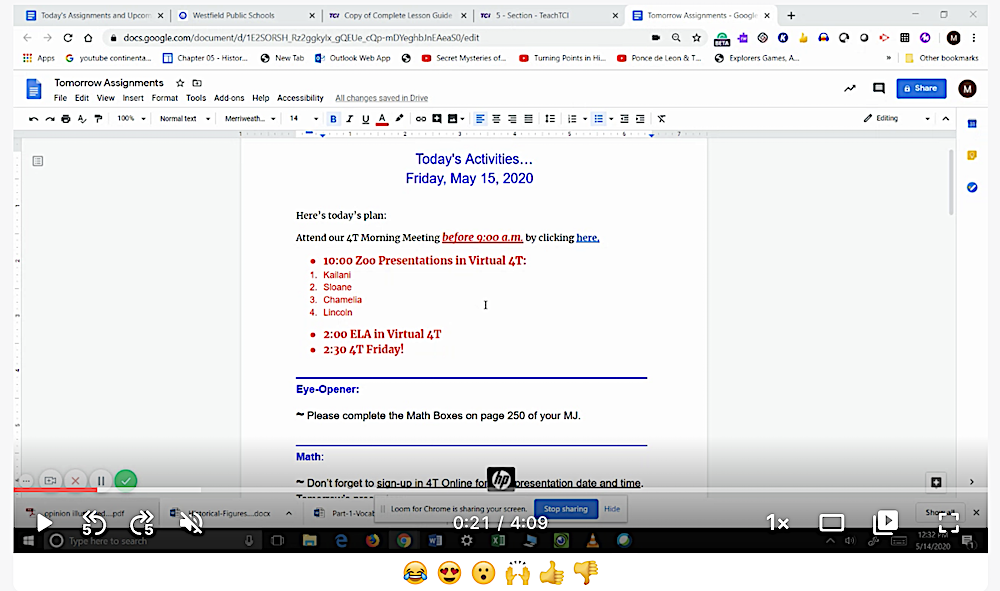Our Chance to Revive the Magic of Learning
A MiddleWeb Blog
 We are a few weeks away from the end of the school year in New Jersey. The last ten weeks have been, to say the least, a strange experience. On March 13th I was doing what I do…getting our school day started as my crew filed in for another day of exploration in Room 4T.
We are a few weeks away from the end of the school year in New Jersey. The last ten weeks have been, to say the least, a strange experience. On March 13th I was doing what I do…getting our school day started as my crew filed in for another day of exploration in Room 4T.
Now, those same little faces are looking at me through tiny rectangles on a computer screen. 4T has been transported from our stoic brick school building to an oversized ottoman in the center of my living room.
This was not in the plan. Plans change. The current pandemic was the ice bucket that made that phrase ring with new and surprising clarity, not to mention the shock factor involved in a large bucket of freezing cold water being dumped over your head.
Over the years, I have begrudgingly accepted limited technology as a tool for educating my students. Now, the choice has been taken away.
Change is inevitable, but this change came suddenly…like death…and we weren’t prepared for its impact. My mother died on March 21st, just one week into this strange new world, and my 4T families’ overwhelming support was the jumpstart I needed to remind me again of what’s really important, the connection I have with my students.
Here’s a video they made to express their condolences, and to remind me we will do this together, 4T Strong, just like we always have.
When education meets “fernweh”
The time saved commuting (and showering for that matter on some days) has afforded me an opportunity to do something I rarely do during the school year. I’ve been reading recreationally, “outside” of school.
I selected two books that seemed “Just Right” for me: Elsewhere by Rosita Boland, and The Death and Life of the Great American School System by Diane Ravitch (on loan from my daughter’s English teacher). The inside flap of the latter describes it as “a passionate plea to preserve and renew public education.”

Both women’s prose, and my own mother’s death, awakened that ache, the ache that accompanies any real change, whether it be in the seeking of educational reform, the pursuit of personal discovery, or the loss of someone you love.
Boland ponders life and delves into the meanings and definitions of many words like guttle, parison, and abature (words that came up as misspellings according to my computer’s internal dictionary). She explores the transformation of these words, from their previously fixed place in our established vernacular, and how their definitions morph with added nuances over time.

In The Death and Life of the Great American School System, Ravitch reflects upon the changes in her thinking, as she sifts through two decades of memory boxes, the artifacts of her professional life as an active member of education reform. When I saw the title, my first thought was “What we really need to do is resurrect the great American school system.”
Resurrect is a transitive verb that means to bring back from the dead, but there is a broader definition. Resurrect also means to bring back to life, bring into view, or bring into use again. Its most common synonyms are revive, renew, rejuvenate, resuscitate, rekindle, and reawaken. Transitive suggests change.
What 4T’s technology looks like this spring
The children at my school are lucky. With so much disparity in access to technology, recent articles in Education Week and The Washington Post warn that our great American schools are becoming even more endangered. 4T has access to technology. We’ve had it since well before March 13, 2020. Our classroom setting may have changed, but our privilege has not.
These days, a pre-recorded Morning Meeting and the use of a shared GoogleDoc help lay out each day. We raise cartoon-like hands on our screens, or we wave frantically to get the attention of the presenter. Home-school communication has taken on new meaning. I have more insight into my students’ social and emotional selves outside of school, what home is really like for many of them (especially before we got so good at muting and unmuting ourselves!).
Some things haven’t changed. We still ask to go to the bathroom with our secret signal. I just have to squint to see it in their little boxes on the screen. Our experience on the read aloud rug, however, has changed dramatically. There is nobody sitting next to us to turn-and-talk to. But we are finding ways to have discussions and to share our connections (especially now that we all are getting so good at muting and unmuting ourselves).
We are reading our Just Right books at home, stopping and jotting off-screen in our Reader’s Notebooks. My two Just Right Books have led me to my own comparison of “then” and “now.” At the written urgings of both Ravitch and Boland, I went back to the first two blogs I wrote for MiddleWeb (here and here) in 2013, to revisit some of my old ideas, to see what still rang true.
I reread them while sitting on the couch with my feet propped up on my new, leather classroom. Two talented women had asked me to revisit my passionate ideals of yore, to see if I still agree with the fierce opinions held by my former self, to see if I, like words in a dictionary, have transformed through the years.
My evolution toward tech
Why I teach and what I teach haven’t actually changed that much…but how I teach? That part is being newly defined.
When I began writing Cusp for MiddleWeb, my hope was that the voice of a dinosaur, one who fought the use of technology, would convince people to hold onto the old educational practices that worked. I firmly believed that effective teaching methodologies should not be tossed aside or replaced with the bells and whistles that technology promised. Mystery Doug reminds me about what happened to the dinosaurs. Some adapted and changed. Many didn’t.
Today, birds are some of the only remaining creatures from the Cretaceous Period. Change is here, and I have a decision to make. Do I want to fight it, or do I want to be part of the resurrection of education in America? Do I want to help us rise from the ashes?
Moving beyond old habits to reawaken learning
Let’s not waste time trying to resurrect the old, ineffective parts of public education, the monotonous and ineffective use of testing, the overuse of new buzz words that are actually old buzz words redefined.
This crisis is an opportunity to resuscitate education, to revive and reawaken the magic that lives in our classrooms, no matter where they are, and to renew the promise we make each day to the kids entrusted to our care. It won’t be easy. Growing and changing usually aren’t. But we’re up to the challenge. We’re teachers.
If I am going to ask my students to rise to the challenge, I need to walk the walk. We are hiking into rocky and unfamiliar terrain… a long fernweh-fueled trek into a new kind of education we have yet to explore.
Below are the contents of this dinosaur’s virtual backpack, resources to keep quirky birds’ wings flapping into the unexplored:
- The Screen Actors Guild Library of read alouds ~ Okay, I am a little jealous of their phenomenal use of voice inflection.
- Padlet and Flipgrid ~ Easy-to-use for the “technology challenged”
- Brainpop, Mystery Doug, and Mystery Science ~ I’m learning a lot too!
- Whiteboard.fi ~ My students loved slates in class, and they love them online too!
- iCivics ~ Learning about our country through effective use of gaming
- Mission USA ~ Revolutionary War and other Historical Adventure Games with thoughtful activities and resources.
- Newsela ~ Offers content in all areas of study, combining ELA and the content areas





































This would be a great TED talk. Your insights and experience are needed now more than ever.